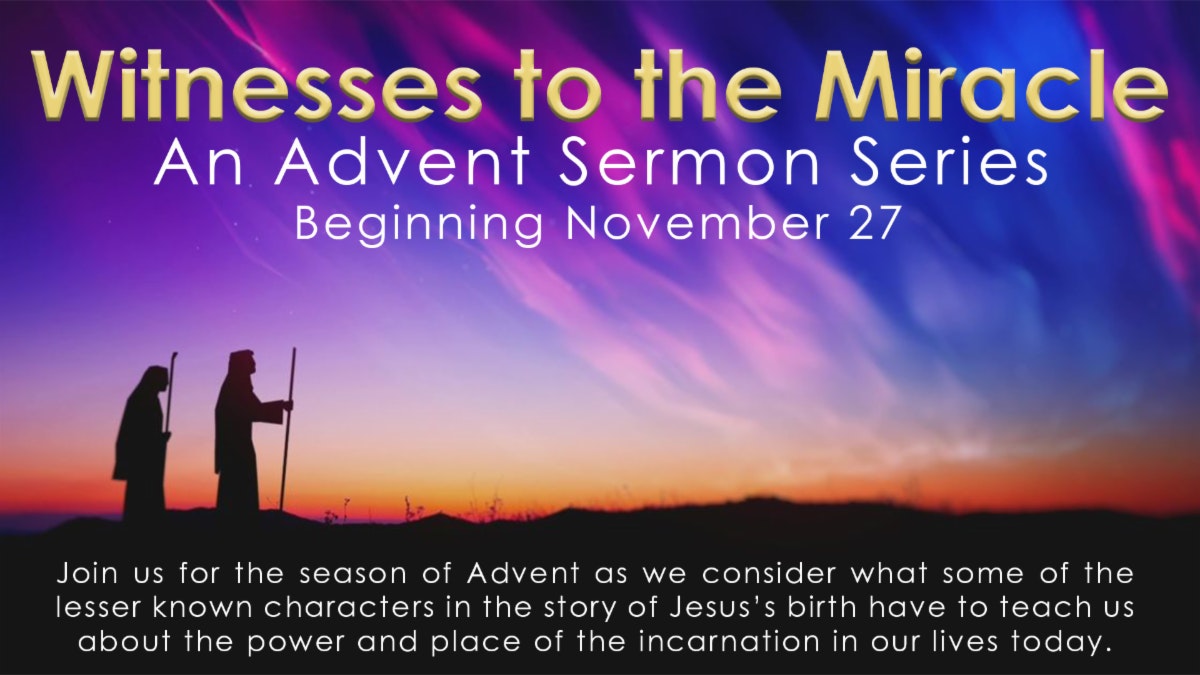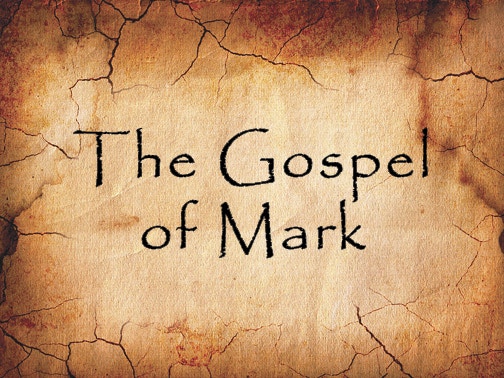
This Is Our Story
First Presbyterian is embarking on a season of storytelling with a church-wide focus this fall that we are calling: “This Is Our Story.” Through worship, study, and mission, we will explore the different ways that our individual and collective stories tell the Story of God’s redemptive love at work all around us. We hope you will join us as together we bear witness to the good news that God’s story is very much still being written.

Heart of the Matter
Rev. Alan F. DyerPaul’s Letter to the Romans provides one of the most concise, clear, and beautiful presentations of Christian doctrine in all the Bible. It is a letter that gets to the “heart of the matter” when it comes to crucial questions about sin, redemption, grace, and the life of faith for believers. This four-week series during the month of August is an invitation for us to know Paul better and to understand how this ancient letter continues to shape our faith in Christ today.

Godspeed: Unearthing Holiness
The word ‘Godspeed’ comes from the old English phrase God Spede – meaning may God flourish you. To live at Godspeed means to be present to where we are, and present to who surrounds us. Our 2023 summer sermon series led us in seeking to “slow down in order to catch up with God.”

Witnesses to the Miracle
Rev. Alan F. DyerDuring the season of Advent we will explore some of the lesser-known characters in the story of Jesus’ birth. From a priest in the temple to shepherds in the field, these witnesses to the miracle have much to teach us about the power and place of the incarnation in our lives today. We hope you will join us as we celebrate Christ’s coming into the world and watch with expectant hope for his coming again.

Encountering Jesus in the Gospel of Mark
Dr. Lewis F. GallowayThrough the stories of Jesus in the Gospels, we come to experience the Risen Lord among us. In listening to the stories of Jesus, we see the pattern of his life in the stories of our lives.

The Fruit of the Spirit
Dr. Lewis F. GallowayIn the Letter to the Galatians, Paul writes that we have been set free by the grace of Christ to live a life of freedom. Paul does not mean that we are free to do anything we want to do for our own selfish purposes. No, we are to live a life of freedom so that we may manifest in our lives the fruit of the Spirit: love, joy, peace, patience, kindness, generosity, faithfulness, gentleness, and self-control. The sermons this summer will explore what it means to live a life of freedom in the power of the Holy Spirit.

You Shall Be My Witnesses
Dr. Lewis F. GallowayThe Resurrection of Jesus invites us to become a part of God's witnessing community as we share the good news of God's forgiveness, life, and love with everyone we meet. We witness to our faith in worship, but our witness truly begins when we open the doors of the church to the world. The Holy Spirit gives us listening ears, compassionate hearts, and thoughtful words for sharing the Gospel with others.

To Live as Children of God
Dr. Lewis F. GallowayLent is a season that helps us grow together as Children of God in the face of a challenging world.

Voices from the Past for the Days that are Ahead
Dr. J. Lewis JohnsonThe Hebrew prophets were persons who emerged during troubled days to speak what they understood to be “the word of the Lord”. When read in the context of the present – and seen as applicable to both their era and ours – they have helped me and will hopefully help you to get a better grasp of life in our difficult times. These voices of the past have brought me to a deeper awareness of the way God worked during their life. I have wrestled to extrapolate meaning for this day in which we live. This is the background thinking and study that have led to the present series of sermons, which will continue until Thanksgiving. “Voices from the Past for the Days that are Ahead” invites you to explore the prophetic writings in the hope of finding light for your path. In the words of Jesus. “Let those who have ears, hear and those who have eyes, see.”

The Gospel of Mark
Dr. Thomas EvansThis Sermon Series is based on an ancient preaching pattern called Lectio Continua. It refers to a verse-by-verse approach that takes you through an entire book. We will not be following this pattern strictly, but my hope is by the end of this series it will feel as if we have.
For the most part, we approach the Bible in bits and pieces. This disjointed approach inevitably skews our understanding. Just like most any written work, the books of the Bible are meant to be read as a whole, not in small brief sections. We will be using the Gospel of Mark and by the end I feel certain you will gain entirely new insights and perspective that cannot come from an occasional brief foray in this gospel.
Mark has crafted an amazing framework and powerful themes that build a case verse-by-verse and chapter-by-chapter. It is decidedly dramatic how this approach adds an entirely new layer, while creating a comprehensive grasp of Jesus’ story. We will also leave with a much clearer understanding that Mark is a story written by a specific person, at a specific time in history, for a specific purpose, to a specific group of people. This clarity will enrich its power and open more deeply the divine word to us today.
As you probably know, Mark is the shortest gospel and thought to be the earliest written, around 64 AD – a few years before the destruction of the Temple. Most of my research for this series came from two commentaries: Binding the Strong Man by Ched Myers, a sociopolitical reading, and Mark by Lamar Williamson, whose book is part of a preaching series known as “Interpretation”.
As we begin to unpack the Gospel of Mark, we will find that nothing should be taken for granted. Not even referring to this as the “Gospel of Mark.”
First, there is no claim of authorship within the text itself! The name of this book, Mark, does not appear until at least 120 AD. It is attributed to St. Mark the Evangelist (Acts 12:12; 15:37), an associate of St. Paul and a disciple of St. Peter. Secondly, to call this a “Gospel” is to assume a tremendous amount.
The word, “gospel,” comes the from old English word, gōd “good” + spel “news”. It was the word which simply meant “good news”.
As a literary genre a gospel is not a biography, especially this gospel. It contains nothing about Jesus’ birth, hardly anything about his family or life experiences. The entire book is about the last three years of his life and most of it about his last week. Most all biographical questions are left unanswered. Some believe Mark adapted a literary genre common to the time known as Aretalogies, or divine-man biographies. These works were about a famous hero that had been built up to make him god-like, for example Julius Caesar.
However, Mark’s Gospel seems to be the first of its kind, paving the way for dozens of others to be written in centuries to come; not so much about the life of Jesus, but written rather as a story with the purpose of answering this question: “Who is Jesus of Nazareth?”

